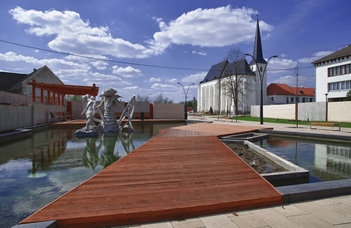Sense of Place in Urban Settings

Identification of Social Problem
Nyírbátor is a medium-sized city in Eastern Hungary that has undergone significant development in the past 15-20 years. These investments, which include both private and municipal/state investments, have reached a sufficient time distance to examine their impact on the everyday life of the city. Seizing this opportunity, it is now worthwhile to conduct a situational analysis to provide insights for the future direction of development based on an objective assessment of recent advancements. Within our research, we conduct environmental psychology, urbanistic, and urban analysis studies to explore various aspects. The foundation of the research is data-based analysis describing the built, social, and economic environment, while the examination of smaller elements and latent attitudes of local residents and visitors' use of space is done through surveys and psychometric measuring tools. The analysis of public spaces and spatial systems using various spatial analytical methods (e.g., space syntax) is carried out simultaneously with the survey-based research.
Result of the Research
Descriptive analysis of data from an environmental psychology questionnaire package. Architectural observation and space syntax analysis.
Research Details
The research consisted of two parts: 1) an environmental psychology questionnaire survey aimed at measuring residents' satisfaction and attachment to the city (in relation to their professed values and general affectivity levels). 2) an architectural/urban analysis aimed at analyzing the socio-economic and physical characteristics of the settlement based on available data and expert observations (analysis of specific public spaces, spatial use, spatial organization, ambient effects, etc.), and comparing these findings with the results of the questionnaire survey linked to specific locations.
Contact
Andrea Dúll (Eötvös Loránd University, Faculty of Education and Psychology)
E-mail
More about the 2022–2023 phase of the research
